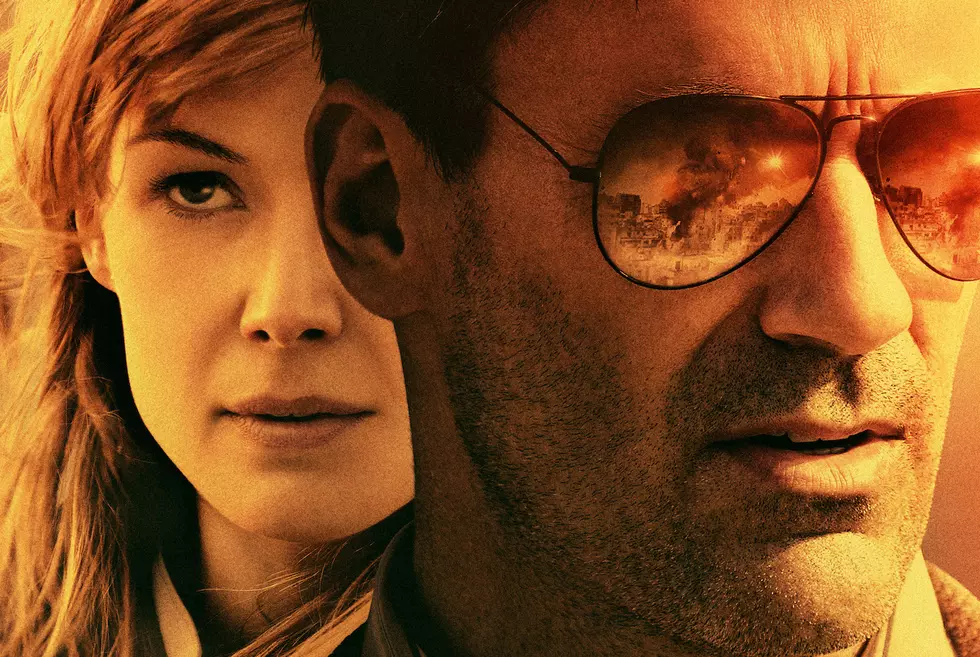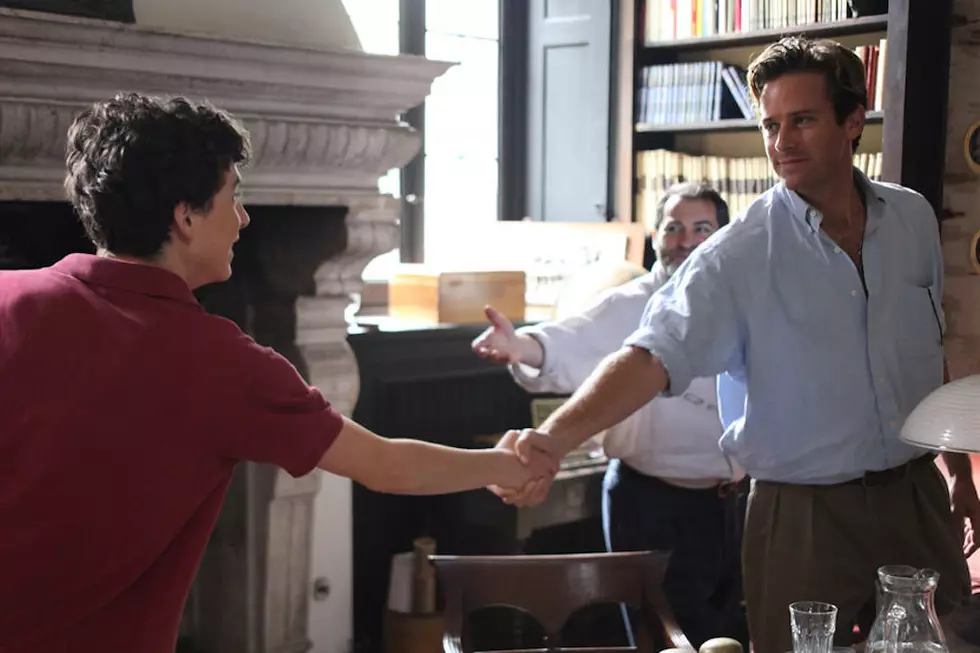
‘To Be Takei’ Review
It's more than just “OK to be Takei.”
If you are one of the six million people who follow the internet meme-machine that is George Takei on social media, you know that this catchphrase was just one example of 'Star Trek''s original Mr. Sulu using his wry wit to promote marriage equality and normalize the gay lifestyle.
Oh – excuse me – it isn't a lifestyle it is an orientation. On this specificity of phrase Takei is adamant, even stopping to correct his (now legal) husband Brad during the solemn occasion of scattering his mother's ashes, just one of the moments in the documentary 'To Be Takei' that is heartfelt, natural and hilarious. (The ashes of the late Mrs. Altman behave similarly to Donnie's in 'The Big Lebowski.')
George and Brad have become fixtures of cable news shows, volunteering to make their private lives public during California's tussle with Proposition 8. Here were two loving people, together for 25 years, living through triumph and adversity. Even the most adamantly opposed to gay marriage would look at them and be forced to come away with, “Well, who's it hurtin'?”
While never a superstar during his acting heyday, Takei was, of course, a member of the original Starship Enterprise, the helmsman of Starfleet's flagship on its five-year mission to explore strange new worlds. 'Star Trek' creator Gene Roddenberry wanted a diverse crew, and while most people cite the inclusion of Nichelle Nichols, an African-American woman, as the principal groundbreaker in the cast, it is important to recognize just how few Asian Americans were on television at that time.
With Takei, Roddenberry didn't get just any old Asian American, but one who had experienced dark chapters in our country's history – the forced internment of more than 100,000 people of Japanese extraction during the second World War. Most of these people were American citizens whose assets were frozen as they were stripped of their rights, shuttled far from their homes and kept behind barbed wire.
The journey of the Takei family from Los Angeles to an Arkansas camp is discussed at length in this film, as part of the everyday fabric of George the Communicator. His current job description is variegated. He's an occasional pitchman, a sitcom guest star, an announcer on the Howard Stern show, an autograph signer at comic book conventions, plus he's a lecturer, a witness to his childhood history and the gay rights movement. He's also the star and creator of a well-meaning (but, to my ears, dreadful) musical about the internment camps. (Tickets sold well in San Diego – possible Broadway run to be determined.)
'To Be Takei' catches this whirlwind firsthand, showing how key his husband Brad is in managing his day-to-day. Like all couples that have been together for decades, they can read one another's minds and also do their share of bickering. There are moments where their behavior simultaneously confirms and conflicts with what we may think of as gay stereotypes – just as all individuals do with whichever group they identify.
'To Be Takei' has its share of appearances from boldfaced names. Unlikely ally Howard Stern pops up from behind his radio mic – he's not going to waste time just answering questions for George's movie. Leonard Nimoy makes a few comments seeming, yet again, like the nicest man in this or any other galaxy. William Shatner, on the other hand, feels like a bit of a jerk – and that's even allowing for bias in the editing room. I find it hard to say anything nasty about my beloved Captain Kirk, but the fact is that on the topic of George Takei, he comes across like a real louse.
'To Be Takei' isn't a groundbreaking biographical documentary like, say, Terry Zwigoff's 'Crumb,' but it is very ... agreeable ... to spend time listening to George Takei make jokes and laugh in that deep, soothing voice of his. Despite the setbacks and persecution (he and Brad felt the need to stay closeted for years), this is a man filled with warmth and compassion, boldly going where few public figures-turned-activists have gone before.
'To Be Takei' premiered at this year's Sundance Film Festival.
Jordan Hoffman is a writer, critic and lapsed filmmaker living in New York City. His work can also be seen on Film.com, Badass Digest and StarTrek.com.
More From ScreenCrush









